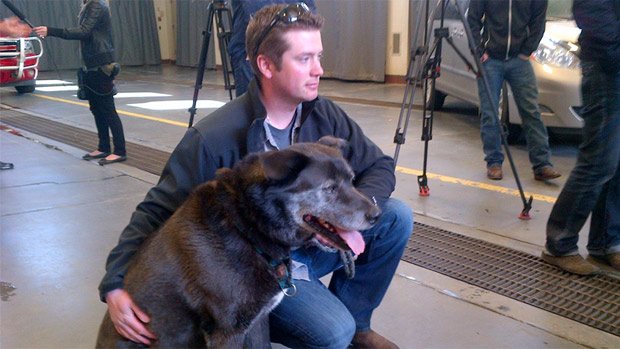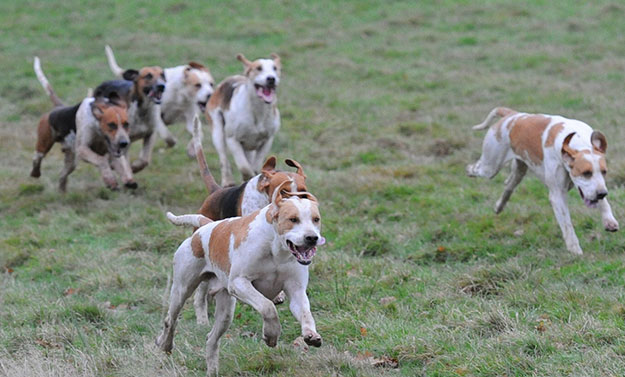





A WORD FITLY SPOKEN.
VERY much good often comes from what
Solomon calls "a word fitly spoken." The
Hebrew for "fitly spoken" here means "set
on wheels." All our words are set on
wheels. If they are good words, they are
wheeling on for good. If they are evil words,
they are wheeling on for evil.
One day a boy was tormenting a kitten.
His little sister, with her eyes full of tears,
said to him, "O Philip, don't do that; it is
God's kitten." The little girl's words were
not lost. They were set on wheels. Philip
left off tormenting the kitten, but he could
not help thinking about what his sister had
said.
"God's kitten, God's creature for he
made it," he said to himself; "I never
thought of that before." The next day, on
his way to school, he overtook one of his
companions beating unmercifully a poor
half-starved dog. Philip ran up to him,
and before he knew it, was using his
sister's words, saying, "Don't do that,
Ned; it is God's creature."
The boy looked ashamed, and tried to
excuse himself by saying that the dog had
stolen his dinner. "Never mind," said
Philip, "you shall have half of mine."
So they went on their way to school
together, and soon forgot all about the dog.
But Philip's words had been set on wheels
again, and much good followed them.
Two persons were passing just as Philip
spoke, and they heard his words. One
was a young man in prosperous business
in a neighboring town; the other was a
ragged, dirty, miserable-looking creature.
He had formed the habit of drinking, and
in consequence of this had just been
dismissed by his employer, and was going
home in despair.
"God's creatures," said the poor fellow,
and it seemed a new idea to him too. "If
that dog is God's creature, then I am God's
creature, too, and he will help me if no one
else will." Just then he came to a tavern
where he had been in the habit of wasting
his money and then going home to abuse
his family. He stopped a moment the
temptation was very strong to go in, but
the new thought was stronger. "No, I'm
God's creature," he said to himself, "I'll
go in there no more." And he went on
toward home.
His wife was astonished to see him come
home sober, and still more so when he
burst into tears, saying that he was a
ruined man, and was determined to give
up drinking, and try, by God's help, to be
a better man.
Just then a knock was heard at the door.
It was the gentleman of whom we have
just spoken. He, too, had heard Philip's
words. They were words on wheels to him.
They went rolling after him. He could
not get away from them. "This is one of
God's creatures, too," he said to himself as
he looked at the poor, ragged man who was
walking before him. " He looks as if he
needed help," he went on to say, " and per-
haps I can give it to him." This led him
to follow the poor man to his home. He
offered him work, which was thankfully
received, and faithfully done. The poor
fellow was never found in a tavern again,
but became a sober, industrious, useful,
happy man. And the simple words which
that little girl set on wheels were the
means of doing all this good.
Ex.

It is estimated that 4.7 million people are bitten by dogs each year. In the 1980s and 1990s the US averaged 17 fatalities per year, while in the 2000s this has increased to 26. 77% of dog bites are from the pet of family or friends, and 50% of attacks occur on the dog owner's property.
A Colorado study found bites in children were less severe than bites in adults. The incidence of dog bites in the US is 12.9 per 10,000 inhabitants, but for boys aged 5 to 9, the incidence rate is 60.7 per 10,000. Moreover, children have a much higher chance to be bitten in the face or neck. Sharp claws with powerful muscles behind them can lacerate flesh in a scratch that can lead to serious infections.
In the UK between 2003 and 2004, there were 5,868 dog attacks on humans, resulting in 5,770 working days lost in sick leave.
In the United States, cats and dogs are a factor in more than 86,000 falls each year. It has been estimated around 2% of dog-related injuries treated in UK hospitals are domestic accidents. The same study found that while dog involvement in road traffic accidents was difficult to quantify, dog-associated road accidents involving injury more commonly involved two-wheeled vehicles.
Toxocara canis (dog roundworm) eggs in dog feces can cause toxocariasis. In the United States, about 10,000 cases of Toxocara infection are reported in humans each year, and almost 14% of the U.S. population is infected. In Great Britain, 24% of soil samples taken from public parks contained T. canis eggs. Untreated toxocariasis can cause retinal damage and decreased vision. Dog feces can also contain hookworms that cause cutaneous larva migrans in humans
Dog, Pups and Chimp
After a mother chimp died at a zoo, one of the zookeepers brought her baby monkey home in order to care for it. The employee’s dog had just had puppies. Unexpectedly, the mother dog bonded with the baby chimp and the chimp ended up seeing the puppies as his siblings. I’ve included a couple just to give you an idea. If you love dogs — or chimps — you’re going to love this.




Dog Rescues Girls
The father of two young girls rescued from the icy North Saskatchewan River in Edmonton Sunday afternoon is thanking the passerby and his dog who saved them.
"I'm very grateful for Adam Shaw and his dog," said Cory Sunshine. "My girls are safe and sound. He is truly our angel."
Sisters Krymzen, 10, and Samara, 9, were tobogganing with their friends in nearby Rundle Park around 4:30 p.m. MT, while the family was preparing Easter dinner, Sunshine said.
"From what I was told was one of the toboggans came off the snowbank and onto the ice and they were trying to come back and the ice broke," he said. "I don't know what they were doing down by the river."
Shaw, 27, was on a family hike with his wife, their two young children and their dog when they heard screaming under the Rundle Park footbridge.
"I looked down to see one young girl floating in the river and her sister trying to pull her out," he told reporters at an Edmonton fire hall Monday.
While his wife called 911, Shaw ran down to the river with Rocky, an eight-year-old husky-Labrador-retriever mix.
By the time he arrived, Krymzen, who was struggling to save Samara, had fallen in as well.

Saskatchewan River, Edmonton, Alberta
Shaw grabbed Krymzen, pulling her out, but Samara was now floating down the river.
"She was bobbing in and out and we could barely see her, so we just started running down the ice trying to get close to her," Shaw said.
Girl couldn't feel her arms or legs
"I said, 'Can you swim toward the ice?'" he said. "She said she couldn't move her arms, couldn't move her legs."
He tried throwing Rocky's leash out to her but couldn't reach her.
Fragile ice lines the banks of the North Saskatchewan River. (CBC)
He tried getting closer but crashed through the fragile ice, sliding into the frigid water along with his dog.
Thrashing in the water, Rocky managed to get his legs up on firmer ice with Shaw pushing the dog from behind. Using Rocky's leash, he pulled himself onto the ice.
"I thought, now I'm in some big trouble here. I was scared for myself. I thought, 'OK I should really be careful here so I don't end up being a victim here too.'"
In the meantime, Samara had disappeared.
"She finally popped back up another 50 to 60 [metres] down," Shaw said.
He raced towards her, but again she was too far out to reach the dog's leash. At that point Shaw knew he had to get the dog into the river.
Rocky jumped into frigid water
Rocky jumped in, getting close enough Samara could finally grasp the leash.
"I called him back and he swam towards the ice and breaking the ice as he was getting closer trying to get up," he said. "I managed to grab him and grab the girl's arm and pull them both up onto the ice."
He held Samara, who was hypothermic and scared, as the fire-rescue team raced up the river in a boat moments later, he said.
The sisters were taken to the University of Alberta Hospital, where they spent the night, but are doing just fine, said Sunshine.
Shaw said he wasn't surprised Rocky jumped into the river.
"He's a terrific dog. He's very adventurous, always in and out of the water. I knew he could jump in the water and swim back no problem."
His wife said she was proud of her husband, but not surprised.
"He would never let someone be in need and not help," Kelsey Shaw said.
"It was a brave act," she said. "It was nothing short of a miracle to be able to get to the other little girl."
Asked if his actions were heroic, Shaw said, "I guess so. We saved their lives and that's all that matters to me."

A FAITHFUL DOG.
A NUMBER of years ago there was published in various papers a story which ran somewhat as follows :
In an eastern city there lived a merchant of considerable wealth. His family consisted of his wife and daughter, the latter a young lady of about eighteen years of age. In those days the money of rich men was not, as now, so generally deposited in the banks for safe keeping. This merchant was unexpectedly called away from home on important business, and having in his possession quite a large sum of money which he did not wish to take with him, he left it at home, charging his wife to take good care of it.
During the day the man who kept the city meat-market called to see the merchant, but was informed that he was away on business, and would not return for several days. The wife of the merchant, believing the butcher to be an honest man, and feeling some uneasiness about the money in her keeping, mentioned to him her fears.
He was, as usual, accompanied by his dog, a large, savage-looking mastiff. Appearing to sympathize with the lady, the butcher offered the services of his dog to guard the treasure. This offer was gladly accepted, and the butcher gave the dog a command to watch, and then left the house.
The mastiff took his position on the hearth in front of the fire-place, and lay so quiet, and took so little notice of what was transpiring around him, that the lady began to think him too stupid to perform the duty which his master had enjoined upon him. Night drew on, and the lady and her daughter retired. About midnight they were awakened by a fierce growl from the dog. Suddenly he made a spring, and caught firmly by the throat a man who was trying to make his entrance through the window of the room in which the money was deposited.
In the morning, the wife and daughter repaired to the window from which the noise was heard during the night, and there beheld the dead body of the butcher, with his throat badly mangled and torn.
Without doubt, the man had decided to turn robber himself, thinking that the dog would recognize him and allow him to enter unharmed ; but the faithful animal, intent only upon performing his duty, sprang suddenly upon the intruder, and did not perceive that he was his master until he had slain him.
The above incident furnishes a striking example of the retribution which even in this world is often visited upon the transgressor. And the dishonesty of the man appears even more glaring when contrasted with the faithfulness of his noble dog.
E. HILLIARD
USEFUL EMPLOYMENT.
WORKING as an ordinary hand in a
Philadelphia ship-yard was a man whose
peculiarity was, that, while others of his class
were indulging in jollification, he was
incessantly engaged in studying upon
mechanical combinations. One of his
companions secured a poodle-dog, and spent six
months in teaching the quadruped to
execute a jig upon his hind-legs. Knowlton spent
the same period in discovering
some method by which he could saw ship timber
in a beveled form. The first man
taught his dog to dance; Knowlton, in the same
time, discovered a mechanical combination that
enabled him to do, in two hours, the work that
would occupy a dozen
men, by slow and laborious process, an entire
day. The result was, Knowlton rose
to be a successful inventor, made a fortune, and
illustrates the folly of useless
employment. Let us improve our time. What we
will be, depends much upon what we
now do; better spend the leisure hours in gaining
knowledge that will not alone
benefit ourselves, but be of benefit to our fellow-
man, than to spend it in teaching either
poodle-dogs or ourselves to dance.

LORD YARBOROUGH'S DOGS.
LORD YARBOROUGH, who has a splendid estate in the Isle of Wight, keeps a great many dogs, eighty in number. They all live in one house, or "kennel," and sleep in one bed, a good big one it must be.
Over the bed hangs a bell, and if the keeper, who lives near by, hears any snarling or quarreling, he just rings the bell, and down they lie, still as mice ; for they know the whip will very soon follow the bell, and so they wisely hush up their little disputes and go to sleep.
All this large family of dogs have names, and when the keeper calls the roll, they each walk out as orderly and as quietly as boys and girls in school.
Think what a quantity of food is needed for their breakfast and supper. In their storeroom may be seen two or three quarters of horse beef hanging up, and great
bins or sacks of nice oatmeal and barley meal. For their soup, two old horses are killed weekly. The oatmeal and barley meal are scalded and made into a kind of porridge; and everything about their house and cookery is perfectly nice and clean.
Select
DOG STORIES.
WHAT a noble-looking dog this is! He looks up at you with his great brown eyes just as if he were ready to speak. He looks something like a hound; for his ears are long and drooping, his nose is quite long, and the shape of his head and mouth is like a hound's. A full - blooded hound, however, has close, short hair. All dogs do not look like this one. The greyhound has a longer and more pointed nose, and a narrow head. His hair is short and fine, and of a gray color. The Italian greyhound is small and delicate; and many ladies have him for their pet parlor dog.
The blood-hound is larger and stronger than the greyhound, and is quite savage. These dogs are noted for their keen scent, and when they once get on the track of game, they do not give up until they have found what they are looking for.
When the people who lived in the South kept slaves, they had large packs of blood-hounds with which they used to hunt out and capture slaves who tried to run away to the North for their freedom. These dogs are so strong and run so fast that they can tire out a horse. If they are looking for some lost person, and have had a smell of his shoes or clothes, away they go, sniffing along the ground till they find him, no matter how many people have walked over the same ground since that person has.
Another very useful dog is the St. Bernard, or Alpine dog. The monks who live in the convent of St. Bernard on a high mountain in Switzerland, where the snow is deep, find these dogs very useful in hunting for travelers who have lost their way on the mountains. The dogs start from the convent in pairs, one having a cloak strapped to his back, and the other a small flask of wine fastened to his neck. When they find the traveler half perishing with the cold, they arouse him, and lead him back to the convent. If he has fallen, and been covered up by the snow, they can find him by their keen scent, and will paw him out, all the while barking till the monks in the convent a mile off hear and come to help them. One of these dogs, who died in trying to save a frozen man, had saved twenty-two lives.
Far to the north, in the Arctic regions, where there is snow and ice all the year, people use dogs for horses. These dogs look so much like wolves that even their owners can hardly tell the difference. They are not gentle like the dogs we have.
Six or more of ,..these dogs are hitched to a sledge, and are guided by the voice of their leader. One traveler says that six of these dogs drew him on a heavily loaded sledge, in two weeks, between seven and eight hundred miles. He says he never heard the Esquimaux speak in any but sharp, harsh tones to their dogs, and that for this reason the dogs are cross and hard to manage.
In hilly countries where a great many sheep are raised, the shepherd dog is very common. These are large, shaggy dogs, very courageous and powerful. They have been so carefully trained that two such dogs could take care of a large flock of sheep, bringing them all back to the fold safely at nightfall. They will even kill a large wolf if he tries to harm any of their sheep.
Then there is the well-known Newfoundland dog. These are fine dogs to have, because they are so good-natured and patient. They are large and shaggy, and of a black and white color. They know a great deal, and many interesting stories are told about them. A lady who had one of these Newfoundland dogs, was one day taken very sick.
She was alone, and did not know how to let her husband know that she wanted him. At last she wrote a note, and putting it in the dog's mouth told him to take it to the store where her husband worked. In a few minutes he came back with the gentleman and a doctor. This same dog was very careful not to let any stranger touch his master's things, and one day when a wood-cutter came to split the wood, he had to leave the work undone because the dog would not let him touch the axe.
The people who lived in Egypt when the Israelites were there, used to worship the dog. They built the city of Cynopolis in his honor, and worshiped him there. They used to sacrifice certain kinds of dogs, and then wrap their bodies in linen cloth with rich spices, thus embalming them the same as they did the people when they died.
Some of these dog-mummies are still to be seen in Egypt.
W. E. L.